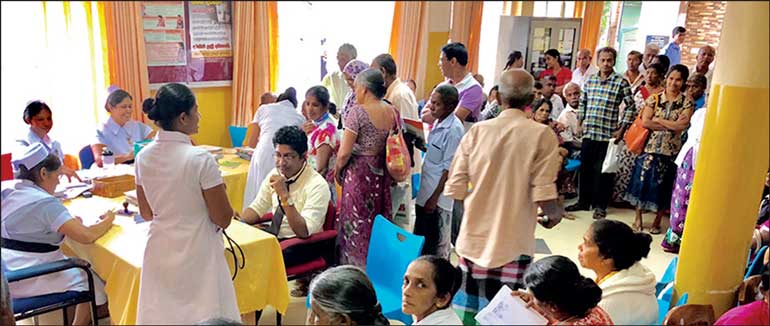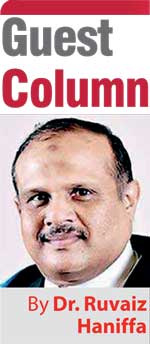Friday Feb 13, 2026
Friday Feb 13, 2026
Friday, 16 December 2022 00:00 - - {{hitsCtrl.values.hits}}

This inability to seek private primary healthcare is going make these patients seek primary care in the already overburdened under-financed poor quality government primary curative care system

I am beginning to see the effects of the economic catastrophe in Sri Lanka on health in relation to my private patients’ ability to spend on health – another disaster already made and waiting to explode in terms of preventable mortality.
A few facts driving the economic-driven pandemic of preventable deaths in Sri Lanka:
1. In 2016 the domestic general government health expenditure as a % of general government expenditure was 9% (I am sure it is less now in real terms)
2. The household contribution to current health expenditure is significant and is largely from out-of-pocket expenses
3. Catastrophic Health Expenditure is defined as if >10% of household expenditure is spent on health expenditure
4. In 2018 6.4% of Sri Lankan households fitted in to the definition of Catastrophic Health Expenditure – given the current economic circumstance at national and household levels this figure of 6.4% I think is very much more now (that is why I am seeing upper and lower middle class families seeking private ambulatory curative primary care being unable to afford even primary care in the private sector anymore)
This inability to seek private primary healthcare is going make these patients seek primary care in the already overburdened under-financed poor quality government primary curative care system. This is going to compound and augment simple health issues into more complex health issues which will require much more specialised healthcare inputs at a late state of illness resulting in no benefit from a health perspective to the patient or country.
Please spare a thought for health of the population.